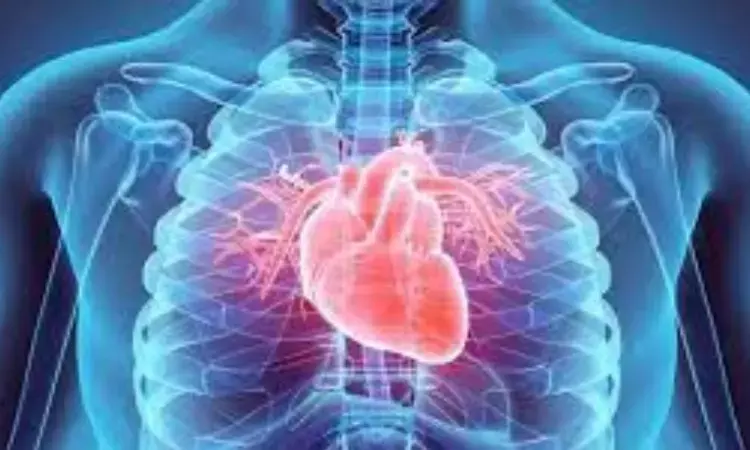- Home
- Medical news & Guidelines
- Anesthesiology
- Cardiology and CTVS
- Critical Care
- Dentistry
- Dermatology
- Diabetes and Endocrinology
- ENT
- Gastroenterology
- Medicine
- Nephrology
- Neurology
- Obstretics-Gynaecology
- Oncology
- Ophthalmology
- Orthopaedics
- Pediatrics-Neonatology
- Psychiatry
- Pulmonology
- Radiology
- Surgery
- Urology
- Laboratory Medicine
- Diet
- Nursing
- Paramedical
- Physiotherapy
- Health news
- Fact Check
- Bone Health Fact Check
- Brain Health Fact Check
- Cancer Related Fact Check
- Child Care Fact Check
- Dental and oral health fact check
- Diabetes and metabolic health fact check
- Diet and Nutrition Fact Check
- Eye and ENT Care Fact Check
- Fitness fact check
- Gut health fact check
- Heart health fact check
- Kidney health fact check
- Medical education fact check
- Men's health fact check
- Respiratory fact check
- Skin and hair care fact check
- Vaccine and Immunization fact check
- Women's health fact check
- AYUSH
- State News
- Andaman and Nicobar Islands
- Andhra Pradesh
- Arunachal Pradesh
- Assam
- Bihar
- Chandigarh
- Chattisgarh
- Dadra and Nagar Haveli
- Daman and Diu
- Delhi
- Goa
- Gujarat
- Haryana
- Himachal Pradesh
- Jammu & Kashmir
- Jharkhand
- Karnataka
- Kerala
- Ladakh
- Lakshadweep
- Madhya Pradesh
- Maharashtra
- Manipur
- Meghalaya
- Mizoram
- Nagaland
- Odisha
- Puducherry
- Punjab
- Rajasthan
- Sikkim
- Tamil Nadu
- Telangana
- Tripura
- Uttar Pradesh
- Uttrakhand
- West Bengal
- Medical Education
- Industry
Elevated NT-ProBNP independently associated with all-cause and cardiovascular mortality

ITALY: According to a study that was published in the journal Cardiovascular Diabetology, increased N-terminal pro-B natriuretic peptide (NT-ProBNP) levels were strongly related with all-cause and cardiovascular mortality and could be used to identify patients who are most at risk.
A significant correlation between blood glucose levels and incident coronary artery disease, stroke, heart failure, as well as all-cause and cardiovascular mortality, has been demonstrated by large observational studies.
Despite the fact that hyperglycemia is a well-known cardiovascular risk factor, each glycemic category has a significantly different absolute risk of cardiovascular events.
"The cardiac hormone N-terminal pro-B natriuretic peptide (NT-ProBNP) has recently attracted attention as a biomarker. Due to its shown ability to forecast both the likelihood and severity of heart failure, it is now almost universally used for the diagnosis and treatment of patients with or at high risk for heart failure, "Stefano Ciardullo, Department of Medicine and Rehabilitation, Italy and team wrote.
The objective of this study was to determine whether N-terminal pro-B natriuretic peptide (NT-ProBNP), which is independent of blood glucose levels, could aid in the identification of those at increased cardiovascular risk.
Serum NT-ProBNP levels were assessed in 5502 general population participants in the 1999–2004 cycles of the National Health and Nutrition Examination Survey who were 45–79 years old and did not have heart failure (3380 had normoglycemia, 1125 had pre-diabetes, and 997 had diabetes). Through December 2015, researchers assessed the correlation between NT-ProBNP levels and all-cause and cardiovascular death using Cox and Fine Gray models modified for cardiovascular risk variables. After a median follow-up of 13 years, 1509 participants had passed away, with 330 of them from cardiovascular diseases.
Major findings of this study:
- In the multivariable-adjusted models, people with NT-ProBNP levels between 100 and 300 pg/ml and below 300 pg/ml had a higher incidence of cardiovascular mortality (HR 1.57, 95% CI 1.17-2.10, p = 0.011 and HR 2.08, 95% CI 1.47-2.93, p< 0.001, respectively) and all-cause mortality (HR 1.61, 95% CI 1.12-2.32, p = 0.012 and HR 2.96, 95% CI 1.75–5.00, p < 0.001, respectively)
- In analysis of subgroups depending on glycemic status, obesity, age, and sex, the connection remained constant.
The researchers observed that in individuals without a prior history of heart failure, NT-ProBNP levels were substantially related with all-cause and cardiovascular death after a median follow-up of 13 years.
They concluded that additional research is required to determine whether therapy intensification based on biomarker data will result in improvements in cardiovascular risk reduction.
REFERENCE
Ciardullo, S., Rea, F., Cannistraci, R. et al. NT-ProBNP and mortality across the spectrum of glucose tolerance in the general US population. Cardiovasc Diabetol 21, 236 (2022). https://doi.org/10.1186/s12933-022-01671-w
Dr Kamal Kant Kohli-MBBS, DTCD- a chest specialist with more than 30 years of practice and a flair for writing clinical articles, Dr Kamal Kant Kohli joined Medical Dialogues as a Chief Editor of Medical News. Besides writing articles, as an editor, he proofreads and verifies all the medical content published on Medical Dialogues including those coming from journals, studies,medical conferences,guidelines etc. Email: drkohli@medicaldialogues.in. Contact no. 011-43720751


